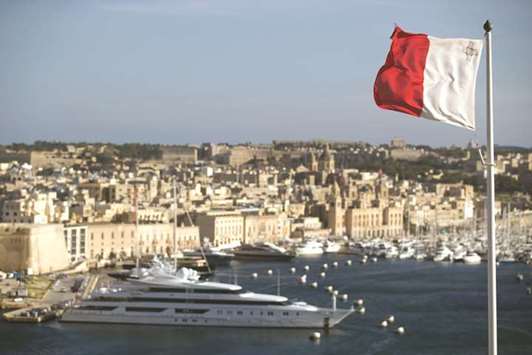The small European island of Malta in the recent past quietly opened its doors to Islamic banking and finance in an attempt to take on established hubs in Europe, namely London and Luxembourg. With the move, Malta aims to benefit from both its international reputation as a financial centre with not overly complex and suppressing regulations, as well as from its relative proximity to Muslim countries in North Africa which can be reached in less than an hour’s flight, and the Gulf, which can be easily accessed on mid-haul flights via Istanbul or Cyprus.
In fact, Malta’s ambitions to introduce Islamic finance go back to 2008, when the island’s financial services authority became the first regulator within the European Union to issue guidelines on Islamic finance. A guidance for sukuk and Shariah-compliant funds followed in 2010, and an update of the regulations in 2015 preceded the launch of an Islamic equity index on the Malta Stock Exchange, aimed at attracting business and investments from Middle East firms and eventually prompt the issuance of sovereign and corporate sukuk, on which the exchange is still waiting.
“Malta has an interest for small Shariah-compliant listings and there is an immediate market which is still largely untapped,” says Patrick O’Brien, communication director of Malta-based Brokerage Exante.
“The suite of investment vehicles offered by Malta as an international financial center also resonates well with Islamic investors, who may set up their funds as special purposes vehicles, collective investment schemes, trusts, alternative investment funds and other types of structures. Malta is also well placed to accommodate charitable collective funds and takaful solutions,” he added, also pointing out that Malta is the only EU member country whose regulatory framework provides for protected and incorporated cell companies.
FInanceMalta, a public-private initiative set up to promote Malta as an international financial centre, in its “Islamic Finance Sector Guide 2016” names a number of opportunities for the launch of Malta-based Islamic banking institutions and Shariah-compliant funds. Those are: Malta’s efficient tax structures with a competitive corporate tax rate and a full imputation tax system creating a pro-business environment, the large network of double taxation agreements with neighbouring countries, including Libya, as well as strong links with all EU member states and North African countries, there in particular with Libya, Tunisia and Egypt, and its membership to the eurozone. Apart from that, the financial industry employs highly trained multi-lingual professionals in financial services within an efficient cost structure. And, unlike the UK, it is certain that Malta will retain passporting rights in the EU with the potential to reach a population of approximately 500mn people.
Apart from Islamic banking, Malta also promotes related sectors of Islamic finance and the halal industry, namely the set-up of Islamic family offices as investment or wealth management tools in combination with residency options and a popular citizenship by investment programme as an alternative to the traditional European family office locations of the U.K. and Switzerland.
Other Islamic economy-related fields being promoted on the island are halal consumer, health and lifestyle products, as well as maritime and aviation registration and financing. For the latter, sukuk has become increasingly popular as strong interests from financiers for Shariah-compliant investment and financing instruments in the maritime and aviation industry is now fuelling demand for Islamic structures that could be set up in Malta in the form of funds, special purpose vehicles and sukuk.
Given its skilled and entrepreneurial workforce, a comprehensive telecoms infrastructure and with data centres, Malta also promotes itself as centre for financial software development with the potential to attract Islamic fintech entrepreneurs who could also use the island as a springboard to nearby markets. Sectors in fintech include Islamic payment systems, since the rising global demand for Islamic banking products and services are creating significant opportunities for Shariah-compliant payment card products, as well as mobile payment systems with Shariah-compliant transaction channels.
Last but not least, Malta also aims to build upon its international reputation as a center for learning and training to set up Islamic finance training institutions with the main benefit that English is one of the official languages on the island and at all higher education institutions.
However, what is still missing for Malta in order to get the Islamic finance message out is the issuance of its first sukuk, Exante’s O’Brien notes.
“Malta has to well-promote itself with international Islamic investors. The government should invest its resources and issue a sukuk so as to place Malta on the map of Islamic finance, while using it to complement the individual investor programme,” he says.

Luxury vessels sit moored at Vittoriosa Yacht Marina beyond the national flag of Malta flying in Valletta, Malta on February 2, 2017. Malta’s ambitions to introduce Islamic finance go back to 2008, when the island’s financial services authority became the first regulator within the European Union to issue guidelines on Islamic finance.
